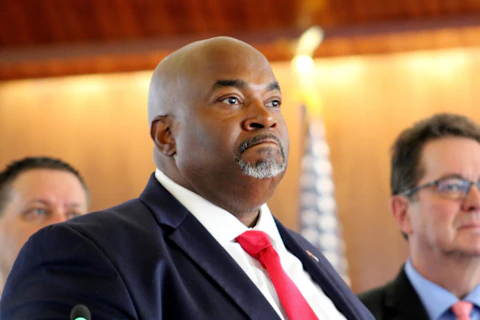Let’s remember that no matter what the Supreme Court decides, our work does not end there.
As a lawyer with a focus on health law, I’m often asked about the upcoming Supreme Court decision in the abortion case June Medical Services v. Russo, and what’s at stake. For Louisiana residents and folks across the country, a lot rides on this critical case, which centers around a Louisiana law designed to shut down abortion clinics.
But now more than ever, as more people are rising up to challenge systemic racism, we must recognize how Black women and women of color will be most impacted if the court upholds this law.
The law in question at the Supreme Court is designed to close clinics by imposing costly, burdensome, and medically unnecessary requirements—such as having admitting privileges at nearby hospitals. Abortions are completely safe medical interventions—even safer than root canals. These and other requirements can be impossible for clinics to adopt, forcing them to close their doors.
As we await the decision, it’s also important to remember that even a good ruling in this case is not going to solve the problem of how difficult it is already to get abortion care in Louisiana and across the country. For decades, care has been pushed out of reach for women of color, immigrants, LGBTQ-GNC folks, and those struggling financially. As an immigrant, a woman of color, and a lawyer, I have seen how our government and courts have consistently failed to protect everyone’s access to abortion and other health care.
As an immigrant, a woman of color, and a lawyer, I have seen how our government and courts have consistently failed to protect everyone’s access to abortion and other health care.
Make no mistake—where someone lives, the type of insurance they have, or however much money they have should not determine whether they can get an abortion. But that’s the reality too many in our communities face. Women of color comprise the majority of those who seek abortion care. They are also more likely to experience poverty and be uninsured as a result of systemic racism in our healthcare system.
One in seven American women and one in four Black women live in poverty, while 14% of Black women are uninsured, compared with 8% of white women. Black women in Southern states like Louisiana have the lowest health insurance coverage rates among all Black women.
One out of three Louisianans are Medicaid enrollees; however, they cannot use their insurance because the state has decided to not go beyond the federal requirements under the Hyde Amendment. In fact, Louisiana also bans abortion coverage in marketplace plans.
RELATED: GOP Voters Say Lawmakers Shouldn’t Fight Over Abortion Rights During Coronavirus Pandemic
When someone is forced to travel a great distance to reach abortion care, this often goes hand-in-hand with costs for travel and lodging, child care for the 60% of people who have abortions who already have children, and lost income from missed work, if they don’t have paid time off. People struggling financially often seek abortion care because they say they can’t afford to support a child. These costs act as additional financial barriers, forcing those seeking care into debt or forgoing care altogether. For Black women and women of color, these barriers are exacerbated by deep economic and social inequities. Laws like the one at stake exacerbate the steep financial hurdles to abortion access already experienced by pregnant people living in poverty. Individuals denied an abortion are three times more likely to be in poverty two years later
Each of us should have the power and resources to care for ourselves and our families without being forced to leave our communities. But already, 90% of U.S. counties lack an abortion provider, while in Louisiana this rate is already at 94%. Currently, 1% of Louisiana women of reproductive age live more than 150 miles from the nearest abortion clinic, but if the law goes into effect, this would increase to up to 71%.
In fact, we have already seen what happens when a law like this goes into effect: In 2016, the Supreme Court ruled on a nearly identical case finding that a Texas admitting privilege law was unconstitutional. As a result of the mass clinic closures caused by these laws, Texans seeking abortions had to travel 20 times farther to reach their nearest clinic.
Let’s remember that no matter what the Supreme Court decides, our work does not end there. Even if the Supreme Court strikes down abortion restrictions in the June Medical Services case, too many people, and especially Black communities and communities of color, would still be unable to reach the care they need to thrive.
RELATED: Tennessee, Iowa GOPers Push Abortion Restrictions in Middle of the Night
Lawyers like myself, advocates, and providers must come together to address deep racist and classist disparities in reproductive health care. This will require continued organizing and long-term legislative and cultural change that centers the most marginalized among us.




